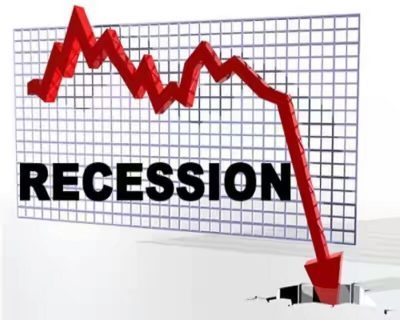Dr Doyin Salami, Senior Lecturer on Friday said that the Federal Government needed to partner with the private sector for private capital to get the country out of recession and for sustainable growth.
Salami of the Lagos Business School, stated this at the third Nigerian Stock Exchange (NSE) & Bloomberg Chief Executive Officers (CEO) Roundtable held in Lagos.
The theme of the roundtable was “innovating out of Nigeria recession: Exploring new paradigms for Nigeria’s economic growth.’’
He said that the country had hit the bottom in terms of recession but its sustainability would depend on private sector involvement for private capital to ensure infrastructure development.
Salami said that government must promote the role of private sector in economic development.
According to him, government commitment to sustainability of economic reforms will determine the growth of the economy.
“What will determine where we go from here is commitment to the reforms we have seen,” he added.
Salami stated that coming out of recession was not the major thing but growing rapidly and sustainability were the key things.
“If Nigeria grows less than three per cent, it means that per capital income is still very low,” he said.
Speaking on Economic Roundup, Salami said that Nigeria needed to diversify revenue base to strengthen economic growth and recovery.
He also stated the need for harmonisation of fiscal and monetary policies to achieve the desired growth.
Salami said that government needed to tackle inflation rate, noting that, inflation rate beyond 12 per cent was very bad for the country.
The economist said that government must review minimum wage in line with the present realities, adding that consumers were under significant pressure due to shrinking salaries and wages.
“Wages and salaries are still shrinking in spite of the fact that the economy is coming out of recession.
“We need to find creative measures to take consumers out of pressure,’’ Salami added.
He said that the last minimum wage was done in 2011, adding that workers had lost significant 50 per cent going by the challenges in the economy.
Salami stated that government needed to deal with youth unemployment to increase productivity, noting that the biggest challenge of the country was unemployment and productivity.
He said that competitiveness and restoration of confidence were important to achieve sustainable growth and development.
Dr Demola Sogunle, the CEO Stanbic IBTC Bank, said that banks non-performing loans grew massively with an average above 20 per cent in 2016 due to the recession.
Sogunle said that massive impairment caused by devaluation of the naira, foreign exchange illiquidity eroded capital of some banks in the 2016 financial year.
Sogunle said that the industry resorted to rationalisation, right sizing and other strategies to reduce cost.
He stated that the industry was tending toward digitisation to reduce cost, adding that banks could not afford to roll out branch networks.
Ms Funke Opeke, the CEO Main One, said that recession slowed down investment in the telecommunication sector.
Opeke said that the industry was unable to approach the market for foreign exchange for importation of equipment needed for efficient and effective service delivery.
She stated that the industry tried to drive operational efficiency out of the existing assets.
Opeke added that the impact of job cuts were severe, thereby eroding quality of service delivery.
Mr Andrew Alli, the President and CEO Africa Finance Corporation (AFC), said that economic contraction affected project development in the country.
Alli said that there had not been many large scale projects in Nigeria in the last few years because of economic contraction.
He said that the corporation was looking at innovative product that would allow financing in naira.
Alli, however, called on the government to address the nation’s inflation and interest rates.
Mr Oscar Onyema, NSE CEO said that the country needed to position itself to maximise the opportunities in the recovering economy.
Onyema said that policy makers should address foreign exchange policies and double taxation to ensure ease of doing business.
He stated that the exchange would continue to provide the needed platform for economic growth and development. (NAN)
JNC/EEE

